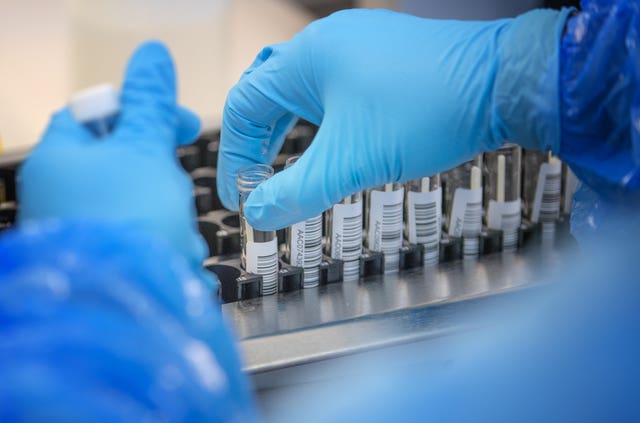Doctors’ union warns people to remain cautious as isolation rules are eased
People should take ‘sensible precautions’, the BMA said.

The situation with coronavirus remains “very precarious” and the public should stay cautious in the wake of self-isolation rules being eased for the fully vaccinated, a doctors’ union has said.
The British Medical Association (BMA) said it would “strongly urge” people to continue to take “sensible precautions” as new guidance came into effect meaning the double-jabbed who are contacts of a person who tests positive for Covid-19 no longer have to isolate unless they have symptoms.
The relaxation of rules, which came into effect on Monday in England, mean while people are advised to take a PCR test if they are a contact of a positive case, they are not required to by law.
The BMA said people should take a test, and also called on the Government to “explore widening the official Covid-19 symptoms list to ensure that it is as up to date as possible and cases are not missed”.
The main symptoms of the virus according to the NHS are a high temperature, a new, continuous cough, and/or a loss or change to your sense of smell or taste.
The BMA is also urging the Government to look at “revisiting policies to make infection control measures mandatory again in public settings”.
The body has also said healthcare workers who want to self-isolate “should not be penalised in any way for doing so”.
The guidance for health and care workers is stricter than for other members of the public.
Double vaccinated health and social care staff who are close contacts of cases must have a negative PCR test and daily lateral flow tests will also need to be taken for 10 days as a precaution.

Staff working with clinically extremely vulnerable patients or service users will need a risk assessment to be carried out by a designated person in the workplace before they return to work.
Dr Penelope Toff, BMA public health medicine committee co-chair, said: “We remain in a very precarious situation with Covid-19.
“Being fully-vaccinated significantly reduces the chance of being infected, but it does not totally eliminate it so we strongly urge the public to remain cautious and take sensible precautions, such as taking a PCR test if in close contact with a positive case.”
She added that the further relaxation of rules “will only increase the spread” of the virus and said there must be a focus on increasing take-up of the vaccines.
She said: “The priority for Government must be to drive down infection rates, not resort to workarounds that could risk infecting others, or of increasing the likelihood of new variants which may be less responsive to current vaccines.
“This needs to be through greater efforts to increase vaccine uptake in the population, especially among younger adults and eligible adolescents, as well as revisiting policies to make infection control measures mandatory again in public settings.”





